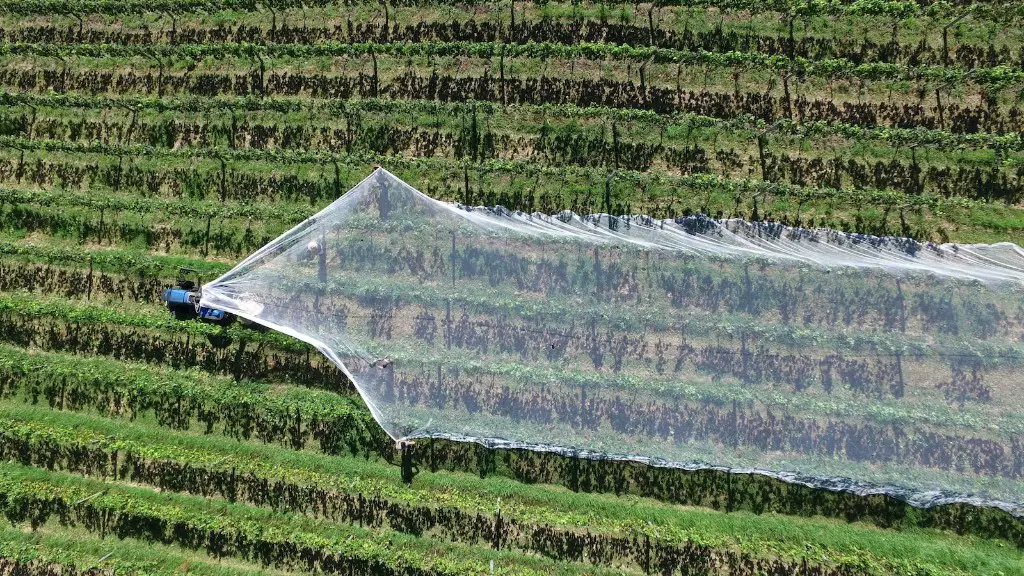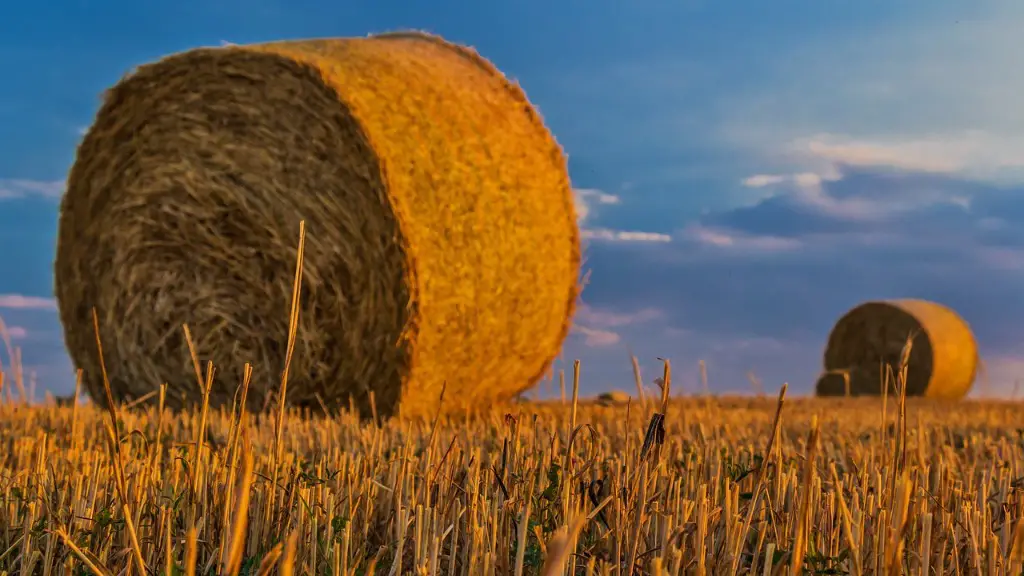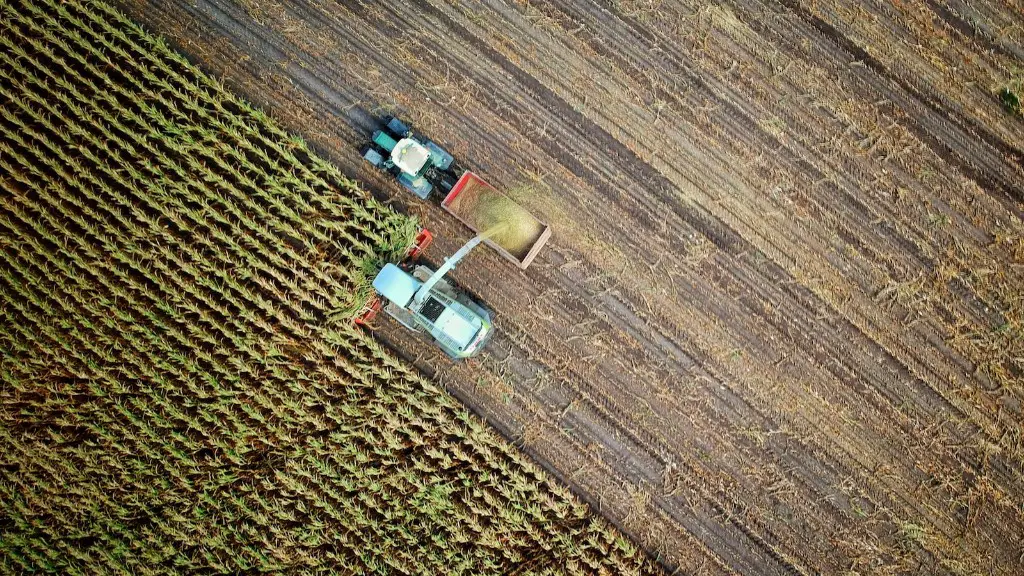The challenges facing agriculture in adopting sustainable practices are many and varied. They include everything from the need to adopt new technologies to the challenge of changing longstanding farming practices. Then there is the need to find the right mix of sustainable practices that work for a specific farm and its location. And, of course, there is the ever-present challenge of making a profit while also protecting and enhancing the environment.
The major challenge facing agriculture in adopting sustainable practices is lack of awareness and technical knowledge among farmers. In addition, there are numerous socio-economic constraints such as lack of access to credit, land tenure insecurity, and poor infrastructure that limit the adoption of sustainable practices. Another challenge is that sustainable agriculture is often associated with low productivity, which discourages many farmers from switching to sustainable practices.
What are the barriers to adoption of sustainable agriculture practices?
There are many barriers to adoption of sustainable practices, including lack of information, economic limits, social factors, farmers’ characteristics, and infrastructure conditions.
Agricultural production needs to become more sustainable in order to protect natural resources and the environment. One-third of farm land is degraded, up to 75 percent of crop genetic diversity has been lost and 22 percent of animal breeds are at risk. Agricultural production must become more efficient and use less land, water and other resources.
What are some major threats to the use of agricultural land and sustainability
Climate change is already having a major impact on agriculture around the world. Droughts, floods, and extreme heat waves are becoming more common and more intense, wreaking havoc on crops and livestock. As a result, farmers are seeing their yields decrease, their costs increase, and their businesses and our food supply threatened.
There are a number of ways to adapt agriculture to climate change, but it will require a major effort from farmers, government, and the private sector. We need to invest in better irrigation and drainage systems, drought-resistant crops, and heat-tolerant livestock. We also need to better manage our land and water resources to reduce pollution and soil erosion.
It’s going to be a challenge, but it’s one we need to take on to protect our food supply and our way of life.
Farmers and livestock producers are facing three major issues: agricultural trade, tax reform and the new farm bill. These issues are causing uncertainty among farmers and producers. Agricultural trade is a major concern for farmers. The new farm bill could have a major impact on tax reform. The new farm bill is also a concern for farmers. These three issues are causing uncertainty among farmers and producers.
What are the two major challenges of sustainable growth?
The challenges of sustainable development are many and varied, but some of the most pressing include political instability between nations, poverty, unemployment, and climate change. To address these challenges, we need strong governance and institutions that can help us meet our goals.
Water and soil are the most important factors for a farming site. Climate, soil, nutrients and water resources all play a role in determining the success of a farm, but water and soil are the most important and the most amenable to human intervention.
Water is essential for all life, and agriculture is no exception. Without water, crops will not grow and livestock will not be able to survive. Soil is also essential for agriculture, as it is the foundation of all plant life. Soil provides nutrients and anchor plants, and helps to regulate water and temperature.
While climate, nutrients and water resources are all important factors, they are not as amenable to human intervention as water and soil. Water and soil conservation are essential for the success of any farm. By conserving these resources, farmers can ensure that their farms will be productive for years to come.
What are the major challenges faced by farmers in sustainable agriculture?
The future of sustainable farming practices in India is under threat from a number of challenges. Yields may drop in the initial years of adopting sustainable practices, and farmers may find the increased drudgery required to be prohibitive. Access to necessary materials, such as water and organic matter, may also be limited. Overall food sufficiency may be compromised if sustainable practices are not adopted widely enough. Finally, the political economy may not be conducive to sustainable farming, with government policies and initiatives failing to support farmers who adopt these practices.
Other significant impediments to adoption include social barriers, land tenure, infrastructure and incompatibility. Social barriers can include things like a lack of awareness of the technology or a lack of trust in the technology. Land tenure can be a barrier if the land is leased or owned by someone other than the farmer. Infrastructure can be a barrier if the infrastructure needed to support the technology is not in place. Incompatibility can be a barrier if the technology is not compatible with existing systems or if it requires a change in management practices.
What are the biggest challenges in agriculture
Farmers have to deal with many different environmental factors that can affect their business. Soil quality, water quality, climate, and terrain are just a few of the things that can have an impact on a farmer’s production and profits. Sometimes, farmers can’t control these factors and they just have to hope for the best. However, there are some things that farmers can do to help mitigate the effects of the environment on their business. For example, they can use technology to help them monitor conditions and make decisions accordingly. They can also choose to plant different crops that are more resilient to the conditions in their area. There is no easy solution to the problem of environmental factors affecting farmers, but with some effort, farmers can try to minimize the impact of these factors on their business.
Farmers face a variety of problems, from climate change and soil erosion to biodiversity loss and meeting changing consumer tastes. They must also invest in farm productivity and adopt new technologies to stay competitive in the global marketplace.
What is the challenge faced by agriculture today?
Natural disasters can have a devastating impact on farmers and their families. They can destroy crops, damage infrastructure, and lead to loss of life. While there is no way to completely protect against these events, there are steps that can be taken to minimize the damage. Farmers can create disaster plans, invest in crop insurance, and build resilience into their operations. By taking these steps, farmers can help protect themselves and their families in the event of a natural disaster.
The study found that there are four main visible impacts of climate change: occupational hazards, vector borne diseases, changing nutritional status, and inequity in development. The study also found that these impacts are likely to increase in the future as the climate continues to change.
What are the three main challenges of sustainability
The challenges of environmental sustainability are numerous and varied. They include global warming due to CO2 emissions, air pollution and water contamination, pollution of the oceans, seas and inland waters, slow energy transition and insufficient share of renewable energy, uncompromising food production harms, and more.
The human impact on the environment is becoming more and more evident, and the need to find sustainable solutions to the world’s environmental problems is becoming increasingly urgent.
There are many environmental sustainability issues that we need to address in order to protect our planet. Some of the most pressing issues include climate change, natural resource use, waste production, water pollution, deforestation, overfishing, ocean acidification, and air pollution. We must take action on these issues in order to create a more sustainable future for our planet.
What is the biggest challenge of sustainable development?
Eradicating extreme poverty, promoting sustainable consumption and pro- duction, and managing the planet’s natural resource base for the benefit of all are the overarching challenges of sustainable development. The eradication of extreme poverty is the most immediate challenge, as over one billion people continue to live in abject poverty, without access to basic human needs such as clean water, sanitation, education, and health care. Promoting sustainable consumption and production is another challenge, as the world’s population continues to grow and consume more resources. This unsustainable consumption is putting strain on the planet’s natural resources, leading to climate change, biodiversity loss, and other environmental problems. Managing the planet’s natural resources base for the benefit of all is a long-term challenge that requires international cooperation and action.
Sustainable agriculture is a type of farming that focuses on producing food in a way that is environmentally friendly and doesn’t damage the land.
There are many sustainable agriculture practices that farmers can adopt to make their operations more sustainable. Some of these practices include rotating crops, planting cover crops and perennials, reducing or eliminating tillage, and applying integrated pest management (IPM).
Integrating livestock and crops and managing whole systems and landscapes are also important sustainable agriculture practices. By adopting these practices, farmers can help to improve the sustainability of their operations and make a positive impact on the environment.
Final Words
The challenges facing agriculture in adopting sustainable practices include lack of awareness, high cost, lack of technical know-how and lack of incentives.
The challenges facing agriculture in adopting sustainable practices are many and varied. They include both technical and economic challenges, as well as challenges related to social and political factors. While some progress has been made in recent years in terms of adopting more sustainable practices, there is still much work to be done. With the right policies and incentives in place, however, it is possible to scale up these efforts and make a real difference in the way that agriculture impacts the environment.





